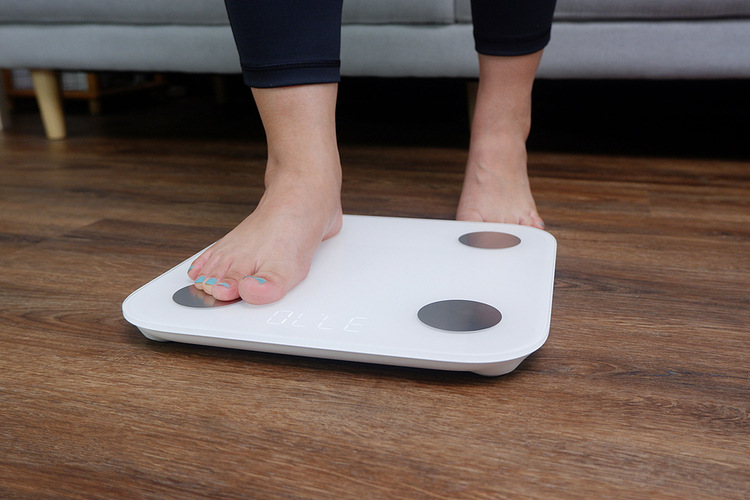Are you the kind of person who has trouble sticking to a diet or eating plan? If you’re nodding your head yes, you’ve likely dealt with weight cycling at some point. Weight cycling happens when someone’s body weight is always going up and down, usually caused by regular dieting and overeating.
In this post, I’ll explain weight cycling, the damage it can cause, and how you can stop yourself from doing it in the future.
What is Weight Cycling?
Weight cycling, also called yo-yo dieting, happens when a person is caught in a pattern of gaining and losing weight. People of all ages and ethnicities have been known to weight cycle, but it’s more common in women than men. Weight cycling is mostly seen in people struggling to lose weight, but some chronic illnesses can also cause it.
If you’re at risk for certain health complications, like heart disease and type 2 diabetes, a doctor will usually recommend weight loss. But trying to lose weight in quick and unhealthy ways can lead to weight cycling. Losing weight and keeping it off isn’t easy, so weight cycling is a common occurrence.
Weight cyclers are classed as mild, moderate, or severe, depending on the amount of weight change each cycle. Mild weight cyclers gain or lose 5-10 pounds, while severe weight cyclers gain or lose over 20 pounds each time.
Can Yo-Yo Dieting Harm You?
It’s still unknown if one would be healthier weight cycling or simply maintaining obesity. Weight cycling has no set criteria, making it hard to study. Although, there has been some inconclusive evidence showing that yo-yo dieting could increase the risk of heart problems, gallstones, bone density loss, decreased immunity, and type 2 diabetes.
Aside from any health risks, losing weight quickly encourages the body to gain the weight back rapidly and put on more. Also, the food restrictions that often come with dieting make us crave the rich, high-calorie foods that we’ve been avoiding. After ending a period of dieting, it’s easy to wind up heavier than before.
Our bodies are well-adapted to maintaining weight, and when restriction happens, they respond by storing fat more easily. This is a survival instinct that has kept us alive during times of famine. In a way, having a life of yo-yo dieting increases the risk for obesity and rapid weight gain.
Another argument for this is the “set-point” theory. The “set-point” theory suggests that the body has a certain weight that it’ll always try to stay at. The theory claims that the body will adapt its metabolism to return to that weight when required. This isn’t to say that weight loss is impossible. Rather, you shouldn’t make your body feel deprived because it will fight you the whole way.
Weight cycling, at the very least, takes away our ability to lose weight healthily and sustainably. When we spend years fighting our bodies, we lose time and energy that could have been better spent. It also robs us of our ability to be well, both mentally and physically.
My Personal Experience with Weight Cycling
Though I wish it weren’t true, I’ve been yo-yo-dieting most of my life. Since around the age of 11, I’d struggled with my weight and body image. I quickly developed a lifestyle of disordered eating to try to lose weight, only to start binge eating instead.
For nearly 2 decades, my struggles with orthorexia, bulimia, and binge eating kept my weight from staying the same for long. As an adult, I’ve been as low as 118 pounds and as high as 186 (as far as I know). That’s much more than the 130 pounds (a totally healthy weight) I was when I started dieting.
Last year when I started this blog, I also gave up food restriction and dieting. Since then, my weight has slowly settled on its own. Because I make a point to exercise and eat mostly healthy foods, my weight is still dropping. I’ve been much better off without diets and disordered eating.
How to Avoid Rapid Weight Gain and Loss
Since weight cycling is a pattern of rapid weight gain and weight loss, learning how to maintain weight or change it slowly is best. The first thing you can do is give up dieting and food restrictions. Lose weight in a slow, sustainable way that allows you to eat the foods you love. This will keep you from feeling deprived or wanting to quit.
Secondly, don’t make a goal to be too thin. Keeping yourself underweight is terribly unhealthy, and your body will war against you the whole time. Finding a healthy weight that’s easy to maintain will keep you well and be far less frustrating.
“If you want to be more in control of your eating, the answer is stop trying to be in control.” – Barbara Spanjers Click To TweetOne Final Piece of Advice
If you’re looking to give up food restriction and have a good relationship with food again, I have the perfect recommendation! Anti-Diet by Christy Harrison is a book that shows readers how they can take back their power from diet culture. It shines a light on the untrue beliefs that society has about larger-bodied people and aims to crush the stigma surrounding fat.
If you haven’t read Anti-Diet yet, I wholly recommend it. This book helped me learn to finally stop the binge/restrict cycle and move on with my life. Christy herself reads the audiobook, which puts genuine emotion into the words you’re hearing. If you’d like more information on the book, I wrote an in-depth and honest review here.
In Summary
Weight cycling happens when a person’s weight fluctuates regularly because of dieting or illness. It’s commonly seen with people trying to lose weight with restrictive diets that lead them to give up and overeat. After dieting, it’s easier for one’s body to gain the weight back plus more.
Losing weight over the long term while enjoying the foods you love will help you stick to your goals and make weight maintenance easier. This will keep the weight from creeping back. Remember, the vast majority of people who lose weight gain it back again. Giving up yo-yo dieting is a great way to avoid becoming a statistic.
Have you struggled with yo-yo dieting in the past? How were you able to overcome it? Share your story in the comments!
That’s it for now everyone. If you’ve found some value in this post, please share it to inspire others too! Thanks!

Facebook | Twitter | Instagram | Pinterest
This post contains affiliate links for products that I love. If you use these links to buy something I may earn a commission with no additional cost to you. Thanks for helping keep this site going! Also, this post was made for the site Lose Weight With Ang. If you’re reading this on a different site, please email us https://loseweightwithang.com/contact/
References:
- https://www.ncbi.nlm.nih.gov/pmc/articles/PMC4241770/
- https://escholarship.org/uc/item/1zz4r4qk
- https://www.healthline.com/health/set-point-theory#summary
- https://www.mayoclinic.org/diseases-conditions/obesity/symptoms-causes
- Featured image credit: Milkos/bigstockphoto.com





Ang, I also have had the yo-yo problem as well. What finally worked for this old fool, was a sustainable diet and exercise program. The former is based mainly on portion control and a fewer carbs (although we love those white colored foods). The latter is doing exercises that I can do every day. I have had the best sustainable weight level in more years than I care to admit. Good post. Keith
Sustainable and without restriction is the way to go! I’m glad you’re doing well.
Thanks Ang. Keep doing what you are doing as yours is a voice that needs to be heeded. To me, these diet programs sound good, but in essence, the main accomplishment is short lived.
Agreed. Thanks Keith!
I’m sure it doesn’t help that there are so many companies pushing unsustainable fad diets.
It absolutely does not help. I wish there was better regulation for fad diets and weight loss products. Similar to medication, they should pass certain tests before being available to the public.
For sure.
I’m going to read about the audiobook of Anti dieting. Thank you!
No problem. I hope you enjoy!
🙂
“Food” for thought: “The beauty of a woman is not in a facial mode but the true beauty in a woman is reflected in her soul. It is the caring that she lovingly gives, the passion that she shows. The beauty of a woman grows with the passing years.” (Audrey Hepburn)
blessings on you, Ang!
Lovely quote! Thank you so much 😊
The worst thing about weight cycling is the toll it can take on someone’s mental health. Thank you for another very informative post.
You’re so right. Thanks!
I loved your article a lot!! Very inspiring and informative. Loved the way you wrote things up!! 😊😊❤❤
Thank you 🙂
You are most welcome dear friend !!😊😊❤❤
This is me. Never ending battle
It was me for a very long time too.
Pingback: My 7 Best Tips for Losing Weight Healthily - Lose Weight With Ang
Pingback: The Truth About Losing Weight Too Fast - Lose Weight With Ang
Pingback: What is HAES? Understanding Health At Every Size
Pingback: Weight Loss for Binge Eaters: My New Course!